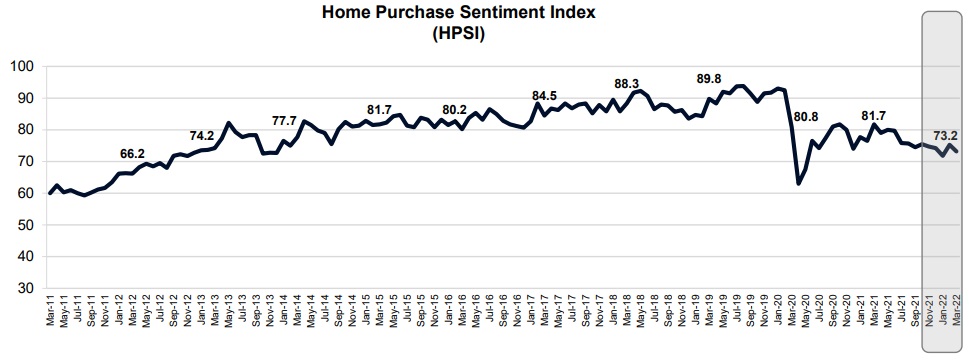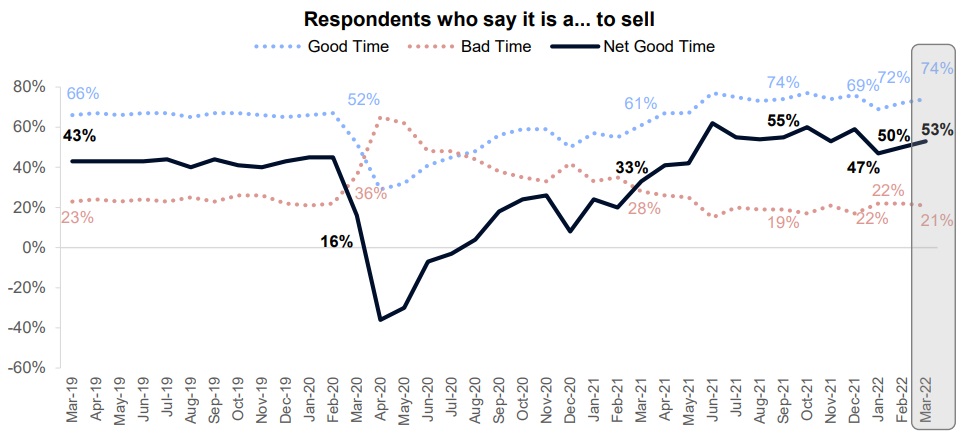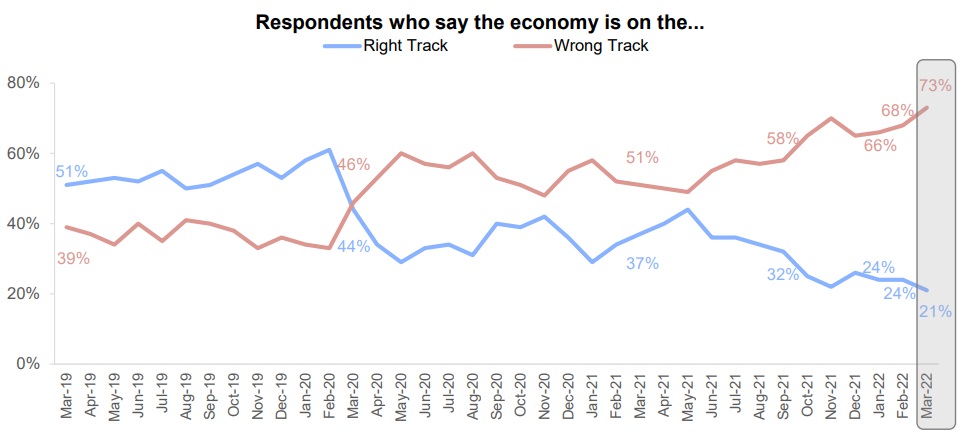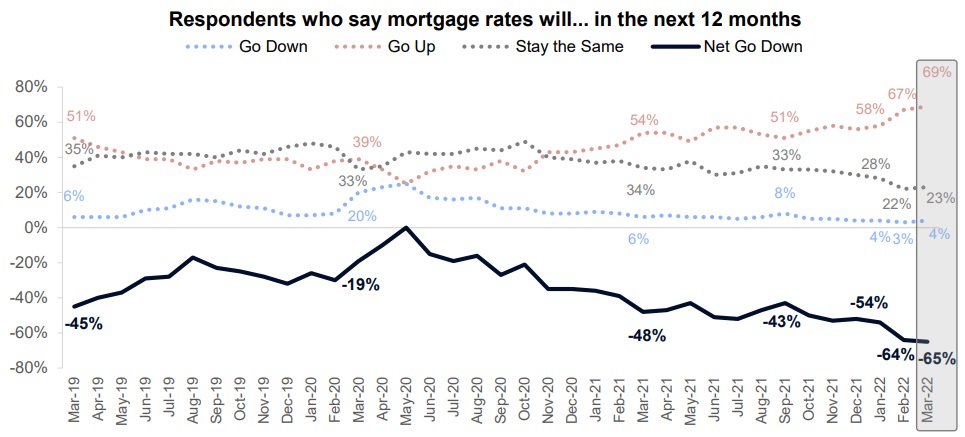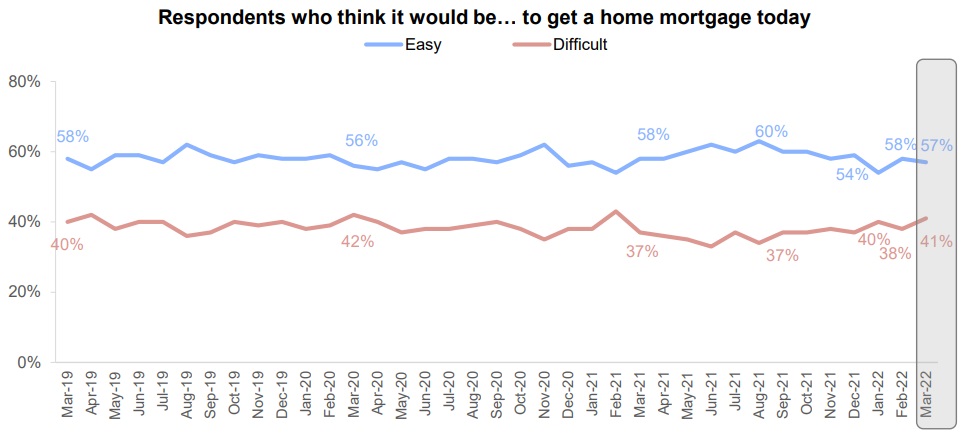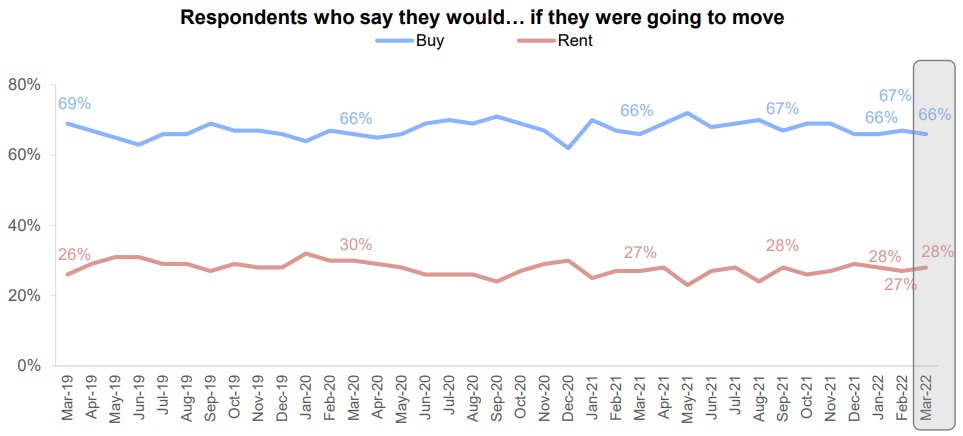Only 24% of consumers think now is a good time to buy a home — the lowest reading ever recorded in a monthly survey conducted by Fannie Mae since 2010.
Inman News
High home prices, rising mortgage rates and economic uncertainty means only 24 percent of consumers think it’s a good time to buy a home — the lowest reading ever recorded in a monthly survey conducted by Fannie Mae since 2010.
Fannie Mae’s latest National Housing Survey, conducted in March, also found 73 percent of Americans think the economy is on the wrong track, and that a survey-high 25 percent of consumers expect their financial situations to get worse over the next 12 months.
Those and other survey findings prompted Fannie Mae Deputy Chief Economist Mark Palim to warn that if consumer pessimism persists, the impacts could ripple through housing markets and dent sales more severely than previously forecast. In a March 10 forecast, Fannie Mae economists predicted that home sales will dip by 4.1 percent this year, to 6.6 million, with projected 12.3 percent growth in new home sales outweighed by an expected 6.1 percent drop in sales of existing homes.
Flagging consumer sentiment, together with the run-up in mortgage rates since the end of 2021, “will likely diminish mortgage demand from move-up buyers – and fewer move-up buyers mean fewer available entry-level homes, adding to the rising-rate challenges for potential first-time homebuyers,” Palim said in a statement. “If consumer pessimism toward homebuying conditions continues and the recent mortgage rate increases are sustained, then we expect to see an even greater cooling of the housing market than previously forecast.”
Fannie Mae’s Home Purchase Sentiment Index (HPSI), which is based on six survey questions, decreased by 2.1 points in March, to 73.2. Although the index was lower at the outset of the pandemic, it’s down 8.5 points compared to the same time last year.
The decrease in the HPSI was attributed to net decreases in consumer sentiment about buying conditions, job loss concerns, home price outlook, and mortgage rate outlook. Consumer sentiment improved in just two areas tracked by the index: selling conditions and change in household income.
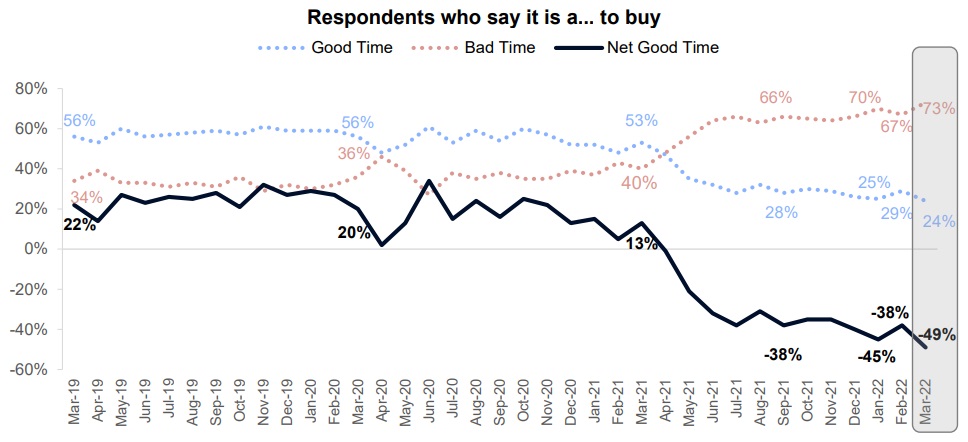
Fannie Mae’s monthly telephone interviews of 1,000 consumers found that the percentage of Americans who think it’s a good time to buy a home fell to an all-time low of 24 percent in March. With 73 percent saying it’s a bad time to buy, the net share of those who say it is a good time to buy decreased 11 percentage points from February.
While market conditions are seen as challenging for buyers, that’s a good thing for those looking to sell, survey respondents said, with 74 percent saying it’s a good time to sell. With the percentage who say it’s a bad time to sell decreasing to 21 percent, the net share of those who say it is a good time to sell increased 3 percentage points from February.
The share of consumers who say the economy is on the wrong track rose 5 percentage points in March, to 73 percent. The share who say it is on the right track fell 3 percentage points, to 21 percent.
Only 4 percent of consumers surveyed in March expected mortgage rates would go down in the next 12 months — a thesis that’s proved correct so far, with mortgage rates surging past 5 percent this week. With 69 percent expecting mortgage rates to go up and 23 percent saying they’ll stay the same, the net share of Americans who say mortgage rates will go down over the next 12 months decreased 1 percentage point month over month.
While most consumers (57 percent) still think it would be easy to get a mortgage, the share of those who say it would be difficult increased 3 percentage points in March, to 41 percent.
While most Americans don’t think it’s a good time to buy a home, 66 percent of those surveyed said that if they had to move, they would buy a home rather than rent. However, the share who say they would rent rather than buy rose by 1 percentage point in March, to 28 percent.

